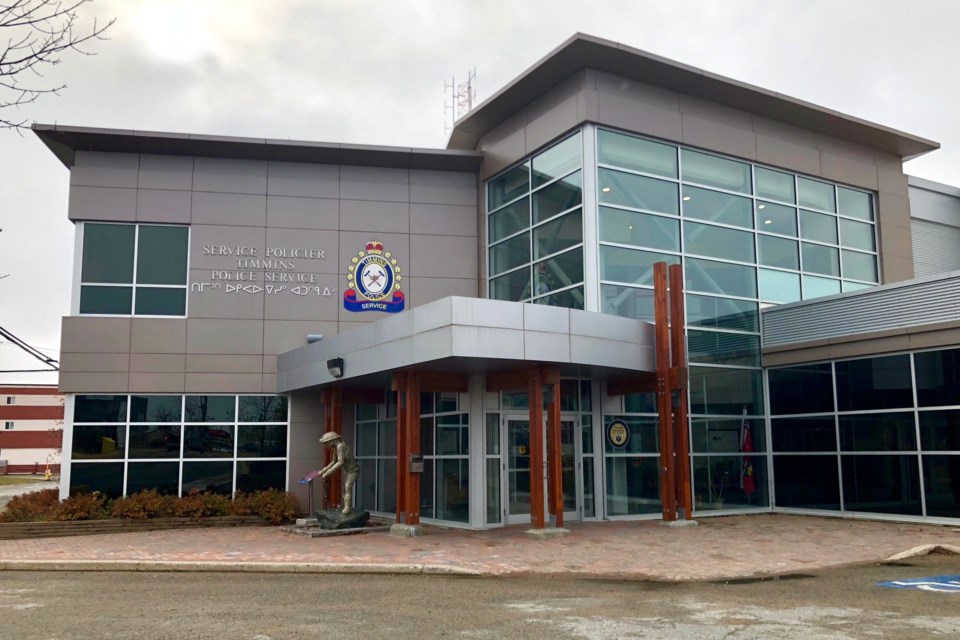Timmins Police attempted to make seven street checks in 2017.
The Ontario street check — or carding — legislation, officially called the Collection of Identifying Information in Certain Circumstances, was put into effect Jan. 1, 2017. It laid new rules for how police can ask for identifying information from individuals, and requires the Chief of Police to produce an annual report with the service’s data.
The data for Jan. 1 to Dec. 31, 2017 was reported at this week’s Timmins Police Services Board meeting by Staff Sgt. Darren Dinel.
Of the seven attempts that were made in six interactions, it shows that six people provided the information.
While Dinel said all of the reasons for the stops were in compliance with the legislation, in two incidents “minor parts” of the regulation weren’t followed.
“They ultimately didn’t offer people the contact card, but they had a reason to stop these people,” he said.
In the other interactions, he said the five people were offered contact cards by the police.
The report also breaks down the interactions by gender, age, race, and where the contact was made.
In 2017, officers talked to six males and one female. There was one individual between the ages of zero to 19 years, four between 20 and 29 years, and two between 50 and 59 years.
Five people were Caucasian, and two were Aboriginal.
“Based on the information that we analyzed there was no disproportionate collections that were taken in any area, so there’s no changes in policies, procedures or any training or anything that’s required,” Dinel said.
The report notes that in 2017 there were 25,467 calls for service. For the report, more than 1,600 incidents were looked at to make sure they didn't fall under the legislation.
“In those two that (Sgt. Shannan Del Guidice) found that weren’t compliant, she spoke with the officers, she spoke with the supervisors to understand exactly the reason why they had interactions with these people, which both of them came from ultimately public complaints of people in certain areas; they were suspicious in nature and the officers did go out to speak with them for, like I said, an articulable reason,” he said.
The new rules apply if an officer asks for people to identify themselves while looking into suspicious activities, gathering intelligence, or investigating general criminal activity in the community.
The new rules do not apply if an officer is:
- talking to a driver during a traffic stop
- arresting or detaining you
- executing a warrant
- investigating a specific crime
If people are stopped by police in a situation that qualifies under the new rules, the officer must:
- have a meaningful reason to talk to you
- tell you why they want the identifying information
- let you know that you can refuse to provide the information
- offer a receipt that includes their name, badge number, contact information for the Office of the Independent Police Review Director, and who to contact to access the personal information the police has on file for you
- keep detail records of the interaction, even if no information is shared
More details on the changes are available here.



